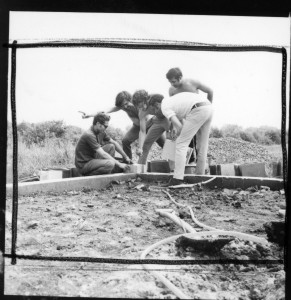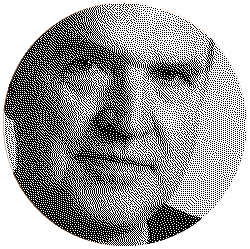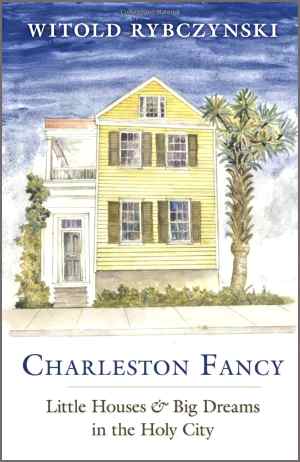
Placing the cornerstone of the Ecol house, Ste. Anne-de-Bellevue, June, 1972. From left to right, Salama Saad, Witold Rybczynski, Arthur Acheson, Samir Ayad, and Wajid Ali.
I watched a PBS Newshour segment last night on Singularity University. Well-named, this really is a singular organization of the sort that only California can spawn—where is Evelyn Waugh when we need him? Singularity is an unaccredited university, that is, it doesn’t give degrees and it has no student body, although it does have faculty, some of whom appeared on the program, interviewed by Paul Solman. It’s obviously liberating to be a professor without the irksome burden of students, for they were all remarkably happy, relaxed, upbeat types. In fact, they reminded me more of cheerful marketers than academics, and what they were selling was an optimistic vision of the future. It was unclear if the visionary technologies described by these self-styled creative thinkers actually existed. But “pushing the frontiers of human progress through innovation and emerging technologies” was apparently good enough for the Newshour. In an earlier life, I used to be a university researcher, looking for ways to make building materials out of recycled industrial waste. We rarely elicited the interest of the media—it was the 1970s, when news still meant hard news—in any case, we were more interested in doing the work than talking about it. Obviously, we had things backward. We didn’t realize that the trick is to promote now, and invent later.


Witold
It was brilliant in the 60’s and still is. I looked you up because some is promoting a solar/wind powered small home as part of New York Design week in Times Square. Maybe we can talk about Ecol on my podcast.
Bruce